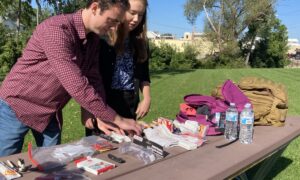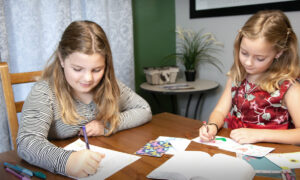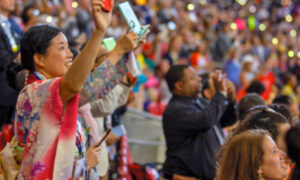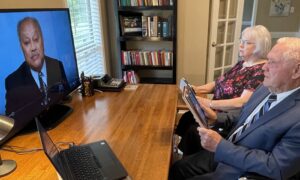What do you do during a pandemic when you’re used to walking up to neighbors’ houses and knocking on the door or ringing the doorbell to share comfort and hope?
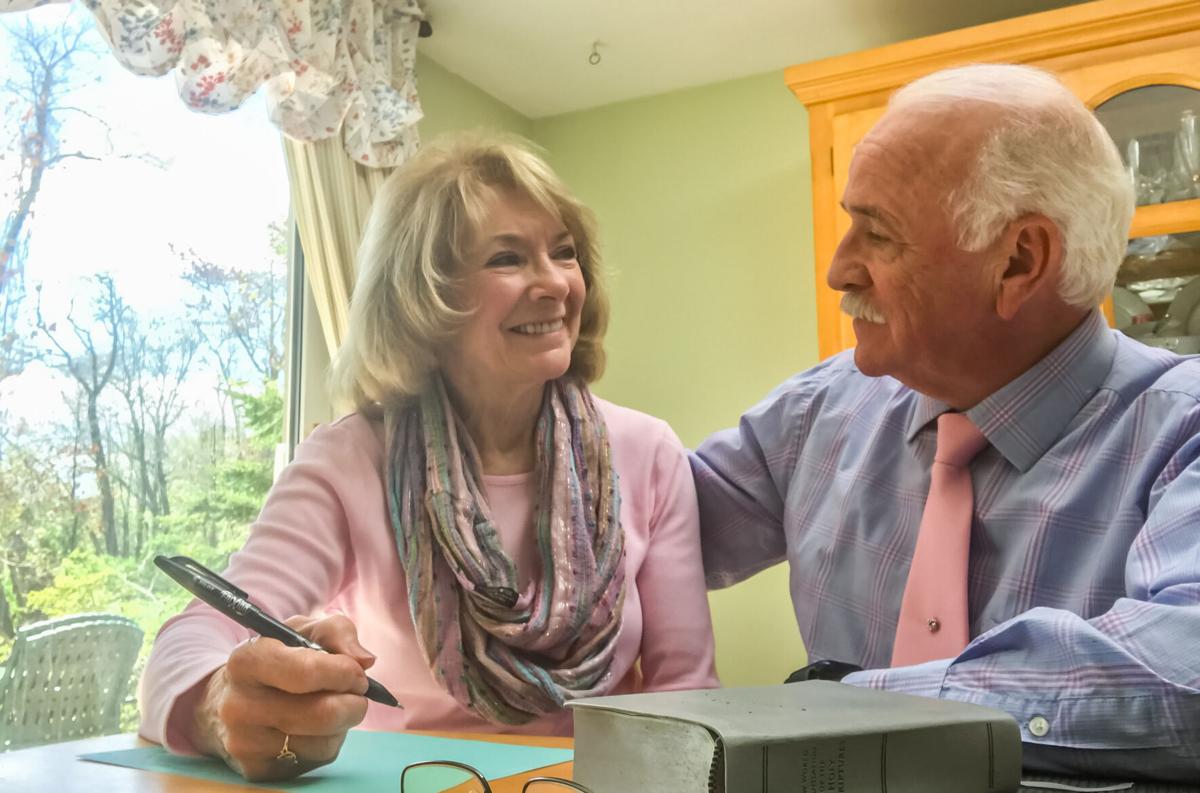
For Mark and Lissa Oliverio, members of Stonington’s Jehovah’s Witness congregation, you pick up a pen or a phone or you turn to Zoom. The same for goes for Cindy and Bob Dray’s congregation in Westerly, as well as for the roughly 1.3 million witnesses in the U.S. who were forced to suspend their door-to-door and face-to-face forms of public ministry and move congregation meetings to videoconferencing.
Suspending the door-to-door ministry was a deliberate decision based on two principles, said Robert Hendriks, U.S. spokesman for Jehovah’s Witnesses in a statement: “Our respect for life and love of neighbor.”
“But we are still witnesses,” Hendriks added, “and, as such, we must testify about our faith. So it was inevitable that we would find a way to continue our work.”
For many witnesses, Hendriks said the change from ringing doorbells and knocking on doors to making phone calls and writing letters expanded and even reinvigorated their ministry.
“I prefer in-person ministry,” said Mark Oliverio, who was baptized into the Jehovah’s Witnesses 33 years ago. But, he added, he has willingly learned to “sit at my PC at my desk in my study upstairs” and find new ways to reach people with messages of hope.
During the pandemic lockdown, Oliverio said, there seemed to be a lot more interest from the people he called … a lot more interest in talking with someone about the anxiety and depression that often comes with such an event.
“We all need strength,” said Oliverio, who likes to share verses from Philippians with the people he speaks to. “There’s not a one size fits all, but scriptures fits all sizes.”
“And I’ve sent out hundreds of letters,” Lissa Oliverio said brightly. “I’ve had some really positive feedback.”
Lissa, a lifelong Jehovah’s Witness who shares passages from the Scriptures in her letters, said she’s connected with an elderly woman who carries around her letter for comfort and another woman who has placed her message on her refrigerator door.
“She said she reads it over and over again,” she said. “We all need hope. We all need strength.”
Lissa said she finds herself urging people not to be afraid in her letters, and to turn to the Scriptures for comfort and hope. She said she also benefits from the Zoom Bible and support meetings the Stonington congregation offer and is able to share that with her pen pals.
Carol Dray, meanwhile, said she feels energized by her letter-writing and spends time tailoring the letters to the folks she is writing to.
She even learned sign language and was able to sign an “I love you” to one of the people she corresponds with, she said.
Bob Dray said shifting from face-to-face to phone visits felt a little like he had his “wings clipped.”
“It was an adjustment,” he said, but being able to connect people with passages from scripture has brought him satisfaction.
Both Drays said they have found joy in their new ministry, witnessing through letter-writing and telephone calls.
Witnesses have also made a concerted effort to check on distant friends and family, said Hendricks, sometimes texting links to Bible-based articles on jw.org that cover timely topics, such as isolation, depression and how to beat pandemic fatigue.
“We have the most wonderful website,” Carol Dray said. “It’s very helpful.”
Nearly 51,000 Americans made a request last year for a witness to contact them, either through a local congregation or jw.org, the organization’s official website, according to Hendriks. Since the outbreak, the witnesses have followed up on these requests via letters and phone calls instead of in-person visits.
“Our love for our neighbors is stronger than ever,” Hendriks said. “In fact, I think we have needed each other more than ever. We are finding that people are perplexed, stressed and feeling isolated. Our work has helped many regain a sense of footing — even normalcy — at a very unsettled time.”
